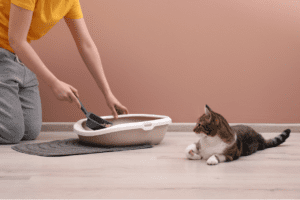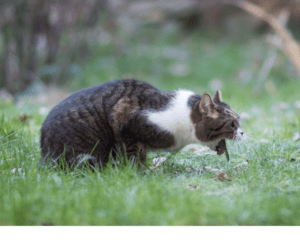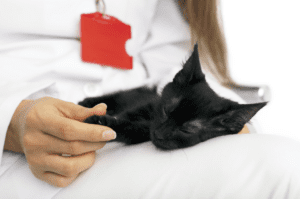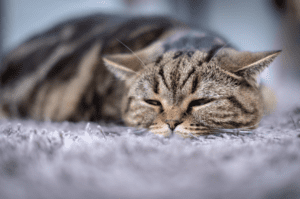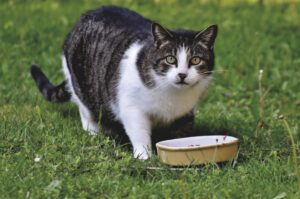Maintaining optimal gastrointestinal health is essential for the overall well-being of our beloved pets. Digestive problems can affect dogs and cats of all ages, leading to a range of symptoms that impact their quality of life. As a responsible pet owner, understanding the causes, recognizing signs of gastrointestinal distress, and implementing effective strategies for prevention and treatment are crucial. In this comprehensive guide, we will delve into the world of gastrointestinal woes in pets, offering tips and insights to help you navigate digestive problems and ensure the best possible digestive health for your furry companions.
Understanding Gastrointestinal Health in Pets
- Importance of Gastrointestinal Health: The gastrointestinal (GI) system plays a vital role in pets’ overall health. It is responsible for digestion, nutrient absorption, and the elimination of waste. Maintaining a healthy GI tract is crucial for their daily functions.
- Common Causes of Gastrointestinal Issues: Gastrointestinal problems in pets can stem from various factors, including dietary indiscretions, food intolerances, infections, parasites, inflammatory conditions, and underlying medical issues.
Signs of Gastrointestinal Distress in Pets
- Vomiting: Occasional vomiting may be normal, but persistent or severe vomiting can indicate an underlying issue. Pay attention to the frequency and consistency of vomited material.
- Diarrhea: Changes in stool consistency, frequency, or the presence of blood in the stool can signal gastrointestinal problems. Diarrhea can lead to dehydration and nutrient loss.
- Changes in Appetite: A sudden increase or decrease in appetite may indicate digestive issues. Refusal to eat or excessive hunger can be red flags.
- Abdominal Discomfort: Pets may show signs of abdominal discomfort, such as restlessness, pacing, or a hunched posture. They may also vocalize when their abdomen is touched.
- Weight Loss: Unexplained weight loss can be a sign of chronic digestive problems, as it may indicate malabsorption or an underlying medical condition.
- Flatulence: Excessive gas and a change in the odor of flatulence can suggest dietary issues or imbalances in the gut microbiota.
Tips for Handling Gastrointestinal Problems in Pets
- Consult with a Veterinarian: If you observe persistent or severe signs of gastrointestinal distress, consult with a veterinarian promptly. Professional guidance is crucial for accurate diagnosis and tailored treatment plans.
- Dietary Management: Transition your pet to a bland diet recommended by your veterinarian. This may include easily digestible foods like boiled chicken and rice. Gradually reintroduce their regular diet once their stomach settles.
- Hydration: Ensure your pet stays hydrated, especially if they are experiencing vomiting or diarrhea. Offer access to clean, fresh water at all times, and consider providing ice cubes for additional hydration.
- Probiotics for Gut Health: Probiotics are beneficial bacteria that can promote a healthy balance in the gut microbiota. Consult with your veterinarian about incorporating a pet-friendly probiotic into your pet’s routine.
- Parasite Prevention: Regularly administer parasite preventatives to protect your pet from internal parasites. Parasitic infections can contribute to gastrointestinal problems, so prevention is key.
- Avoid Table Scraps: Refrain from feeding your pet table scraps, as certain human foods can be harmful and contribute to digestive issues. Stick to a balanced, pet-specific diet.
- Gradual Diet Changes: When introducing new foods or transitioning to a different diet, do so gradually to allow your pet’s digestive system to adapt. Sudden dietary changes can lead to upset stomachs.
- Monitor Behavior and Stool: Keep a close eye on your pet’s behavior and stool quality. Changes in behavior or the presence of blood in the stool should be reported to your veterinarian.
- Routine Veterinary Check-ups: Schedule regular veterinary check-ups to monitor your pet’s overall health. Routine examinations can help detect potential digestive issues before they escalate.

Prevention Strategies for Gastrointestinal Health
- High-Quality Nutrition: Provide a balanced and nutritionally complete diet suitable for your pet’s age, size, and breed. High-quality nutrition is the foundation for a healthy digestive system.
- Routine Exercise: Regular physical activity aids digestion and helps maintain a healthy weight. Exercise also promotes overall well-being, contributing to a robust gastrointestinal system.
- Stress Management: Minimize stressors in your pet’s environment. Cats, in particular, may experience stress-related digestive issues, so create a calm and secure living space.
- Dental Care: Oral health is linked to digestive health. Implement a dental care routine to prevent oral issues that can impact the digestive system.
- Avoid Toxic Substances: Keep toxic substances, including certain plants, household chemicals, and human medications, out of reach. Ingestion of these substances can lead to severe gastrointestinal distress.
- Regular Deworming: Follow a deworming schedule recommended by your veterinarian. Intestinal parasites can cause significant digestive problems, and routine deworming is a preventive measure.
- Monitor Food Allergies: Be aware of potential food allergies or intolerances in your pet. If you suspect a specific ingredient is causing issues, consult with your veterinarian about alternative dietary options.
- Age-Appropriate Diets: Adjust your pet’s diet based on their life stage. Puppies and kittens, adult pets, and seniors have varying nutritional needs, and choosing age-appropriate diets supports their digestive health.
Conclusion: A Digestive Wellness Plan for Happy Pets
Handling gastrointestinal problems in pets involves a proactive approach to their overall health. By staying attuned to their behavior, promptly addressing signs of distress, and incorporating preventive measures into their care routine, you contribute to their digestive wellness.
As a responsible pet owner, your commitment to providing proper nutrition, routine veterinary care, and a nurturing environment ensures that your furry friends can enjoy optimal digestive health. Together, let’s embark on a journey toward a future where digestive problems are met with informed care and a commitment to the well-being of our cherished pets.


